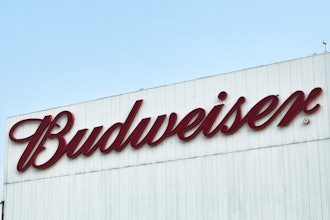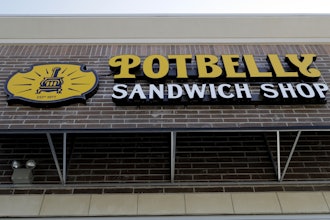This article originally ran in the October 2012 issue of Food Manufacturing.
Many businesses give special consideration to equipment financing as the end of the year approaches in order to take advantage of special incentives lenders and captive vendors may offer. While such deals are often available, it’s important to keep financing in mind for acquiring the equipment your business needs, regardless of the time of year. From commercial banks to manufacturers to smaller, more specialized commercial finance companies, a variety of options can be found. The key is determining your business’s needs so you can select financing that will best address them.
The Push Behind Year-end Deals
There is typically a push by leasing and finance companies to close transactions every December, mainly to take advantage of any tax benefits during that fiscal year. As a result, the Monthly Leasing and Finance Index (MLFI) issued by the Equipment Leasing and Finance Association (ELFA) traditionally shows new business volume spiking in December. When tax benefits for equipment leasing and finance companies exist, there should be an added incentive for them to offer better deals to customers.
For food manufacturing managers, the push to complete equipment financing transactions by year-end may stem from a couple of scenarios. One is the ability to leverage the year’s unused operating funds to secure better terms or larger deals with financing companies who are eager to get deals done. Another is the need to maximize the allocated budget, to “use it or lose it”, so it’s not reabsorbed back to the company and possibly cut from next year’s budget. In either case, it is recommended that businesses consult with their accounting advisors to ensure they are getting the right equipment with the best possible terms.
Advantages All Year Long
Given growing equipment demand amid ongoing economic uncertainty, many businesses find that equipment financing is a key acquisition strategy. The current market shows equipment financing is as vital and available as ever, enabling businesses to secure the assets they need while achieving their operational and financial objectives. A closer look at 10 key benefits of equipment financing will show clearly that there’s no need to wait until the end of the year to acquire equipment:
- Flexible Financial Solutions. The types of financing solutions equipment finance companies offer — especially leases — are flexible and can be tailored to specific accounting, tax or cash flow needs.
- Capital Preservation. Financing versus spending cash, and particularly the type of financing employed (lease vs. loan) can help mitigate the uncertainty of investing in a capital asset that may not yield the desired return or increase efficiency, cost savings or future sales.
- Improved Expense Planning. Maintaining cash flow and consistent budgeting is another benefit of equipment financing. Instead of considerable capital outlays resulting in huge budget fluctuations, financing enables even expense planning.
- Business Cycle Flexibility. Some types of leases allow for seasonal business fluctuations, lower monthly payments while a project is ramping up and revenue is not yet being generated from the equipment, and other specific circumstances.
- Up-to-Date Technology. Many businesses couldn’t afford to buy outright the equipment they need to be competitive and thrive. With term financing, they are often able to acquire more and better equipment that may have been out of their reach if they only considered buying it.
- Equipment Expertise. Many equipment finance companies are equipment experts and offer equipment specialties which other sources of finance do not. Equipment financiers have special relationships with manufacturers and distributors, specializing in certain equipment types or industry categories.
- Managed Obsolescence. The risk of owning obsolete equipment is eliminated if you use lease financing for your acquisition, since many agreements allow for easy, fast equipment updates. Most equipment finance companies, in partnership with their vendors, will work with your business to “right size” the equipment.
- Dependable Asset Management. Asset management is a key benefit of many forms of equipment finance, ensuring equipment in operation isn’t under-utilized or over-utilized. A good asset management program tracks equipment throughout its life cycle from delivery to installation, use, maintenance, and finally de-installation and disposition.
- Equipment Disposal. Most businesses don’t have the resources or knowledge to efficiently manage and sell their old equipment. You may essentially outsource the equipment management function so the financing company can handle its disposal or resale when it’s time to retire the asset.
- Reduced Risk. Equipment purchases involve risk to the owner, from equipment expertise to capital outlays, from asset management to obsolescence. Financing removes many unnecessary risks, allowing you to focus on your business.
ELFA has been equipping businesses for success for more than 50 years. For more information visit www.ELFAOnline.org.





















